&uuid=(email))
&uuid=(email))
&uuid=(email)) |
|
&uuid=(email))
&uuid=(email))
&uuid=(email))
&uuid=(email))
&uuid=(email))
&uuid=(email))
&uuid=(email))
&uuid=(email))
&uuid=(email))
&uuid=(email))
&uuid=(email))
&uuid=(email))
&uuid=(email))


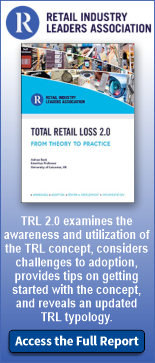
&uuid=(email))
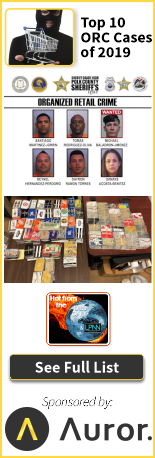


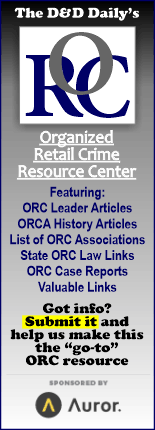






|
|

|
|

Organized Retail Crime Roundtable: A National Update
Scott Sanford, Debra
Lussier, Denny Dansak, Tony Sheppard, Nelson Harrah
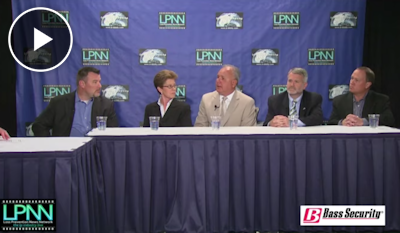
Filmed in June 2014 at the Daily's 'Live in Ft. Lauderdale at NRF
PROTECT 2014' show
In this national update on ORC, hear from five of the leading experts on this
growing threat to the LP industry and the latest efforts to combat it.
Scott Sanford, Director of Loss Prevention
for goPuff;
Debra Lussier, Sr. Manager, Central
Investigations for The Home Depot;
Denny Dansak, former Sr. Corporate
Manager, ORC for Kroger;
Tony Sheppard, Director of Loss Prevention
- ORC for Ulta Beauty; and
Nelson Harrah, Director of ORC for Gap
Inc., discuss the link between online fraud and brick-and-mortar crimes, the
impact of state ORC laws, and the mounting national effort of ORC associations
that are helping to bridge the gap.
Episode Sponsored By

|
|

&uuid=(email)) |
|
|
 
|
|
|
Join us for a free 1-hour webinar April 30, 2020 at
11:00am EST to learn how retailers can connect their EAS hardware,
giving them the ability to service, diagnose and see analytics remotely.
This enables them to improve profitability, efficiency and transparency
across their EAS fleet.
During this free webinar offered by The Loss Prevention Foundation, in
partnership with Nedap, Asset Protection and Loss Prevention professionals
will learn how connected systems are becoming the EAS standard for retailers
in the industry and why being connected is so important for both present and
the future.
This webinar qualifies for 1 Continuing Education Unit (CEU) towards your
LPC Re-Certification. Attendees will be entered into a drawing for a chance
at 5 LPC Course Scholarships. Winners will be announced the day following
the webinar via email.
|
|
&uuid=(email)) |
|
|
&uuid=(email)) 
|
|
|
Industry Veterans Team Up to Discuss the Rapidly Changing Environment
and 'New Normal' Related to COVID-19
Industry experts discuss how retailers are coping with the changes and impacts
the Coronavirus pandemic is having on the retail loss prevention industry. In
each weekly LPRC
CrimeScience COVID-19 Series podcast, Dr. Read Hayes covers LPRC initiatives
related to the pandemic, Tom Meehan, CFI reviews risk and vulnerabilities in
technology and Tony D'Onofrio discusses the 'new normal' from current events.
"We have started our new LPRC CrimeScience COVID-19 series to thoroughly discuss
dynamics and evidence-based solutions during these uncertain times," said Dr.
Read Hayes, research scientist at University of Florida and director of LPRC. "In addition to this podcast,
the LPRC is leveraging multiple research and other data sources to support our
nearly 70 major retail chains in helping maintain customer and employee
confidence."
Read More Here
A Message About PPE - From CIS Security
 During
the COVID-19 pandemic, solution providers are reaching out to their contacts and
to each other to provide you with the solutions and certified Personal
Protection Equipment (PPE) to help enable your stores to open in a safe
environment for your associates and customers. During
the COVID-19 pandemic, solution providers are reaching out to their contacts and
to each other to provide you with the solutions and certified Personal
Protection Equipment (PPE) to help enable your stores to open in a safe
environment for your associates and customers.
There have been requests for information and pricing, regarding Personal
Protection Equipment for the retail associates, and for other products that will
facilitate for when the times comes to re-open the stores. There are a lot of
manufacturers in China providing PPE. Because of this, we have chosen to use our
colleagues and partners because we have confidence in them. They are honest and
their reputation for quality and price is well respected.
Read the full message here from Peter Morello, President, CIS Security
Solutions Inc.
RILA Presses Congress on Proposals to Assist Retailers
 To
help retailers reopen and rehire Americans, once health officials deem it safe
to do so, the Retail Industry Leaders Association (RILA) is urging Congress to
consider several policy proposals that will broadly benefit the retail industry
and enable retailers to bring Americans back to work. To
help retailers reopen and rehire Americans, once health officials deem it safe
to do so, the Retail Industry Leaders Association (RILA) is urging Congress to
consider several policy proposals that will broadly benefit the retail industry
and enable retailers to bring Americans back to work.
Policy proposal details were outlined in a
letter sent to Congress
today.
Once health experts signal that stores are permitted to reopen the retail
experience will look different. Retailers are beginning to retrofit their stores
to operate in a post COVID-19 environment. Tax credits and incentives,
amongst other policy changes, should be made available to retailers who invest
in health and security measures for their customers and employees."
rila.org
Coronavirus Update: April
17
US:
Over
686K
Cases - 35K Dead - 58K Recovered
Worldwide:
Over 2.2M Cases - 150K Dead - 564K Recovered
Wuhan suddenly increases coronavirus death toll by 50 percent
Chinese city of Wuhan - where the global outbreak is believed to have originated
- was revised on Friday, increasing by 50 percent, state media reported.
Wuhan is attributing the drastic uptick - from 2,579 to 3,869 fatalities
- to insufficient admission capabilities at hospitals that were
overwhelmed during the outbreak's peak in the city.
Cases in the city were also adjusted, up 325 to 50,333, accounting for
over 60 percent of everybody infected in all of China.
Wuhan's revised coronavirus numbers came days after it was revealed the Chinese
government waited six days before warning its citizens of the severity of
Wuhan's outbreak.
China's lackluster data on the viral spread led many countries to believe that
public health authorities there had stopped the spread.
If there is one thing the CCP hates it is being embarrassed. Xi Jinping,
the country's president, fired at least three Hubei communist party bosses in
charge at the time. It was an attempt to save face.
The U.S. intelligence services said two weeks ago that China's infection rate
data was bogus.
inhomelandsecurity.com
nypost.com
PPE Shortage:
COVID-19 Complaints, Lawsuits Against Security Contractors Pile-Up
 Complaints from contract security officers and their unions are beginning to
stack up across the county causing state regulatory agencies and the U.S.
Department of Labor to initiate investigations. Complaints from contract security officers and their unions are beginning to
stack up across the county causing state regulatory agencies and the U.S.
Department of Labor to initiate investigations.
Security officers are considered "essential" personnel and have been working
around the clock protecting closed businesses from being burglarized, keeping
the peace at grocery stores and providing high viability security at numerous
commercial and residential locations.
But many security officers have been complaining for weeks that they do not
have the proper Personal Protective Equipment to work in some of the
environments where they're face to face with hundreds of people a day. More than
three dozen security officers have reported that their employers have told them
that they are not required to provide PPE and if they want to wear it, they will
have to buy it themselves.
During the past twenty days, sixty-one security officers working at medical
facilities, retail stores and public transportation terminals, have reported
that people have intentionally coughed, sneezed and spit on them, saying
that they were infected with the COVID-19 virus and two New York City homeless
shelter security officers who were not properly equipped with safety equipment
tested positive for the virus.
At least five lawsuits against security companies by their employees have now
been filed for non-payment and lack of PPE issues. At lease one lawsuit has
also been filed against a security company for not having Worker's Compensation
and refusing to pay the medical costs of a security officer who became infected
with the COVID-19 virus.
There have been 57 confirmed security officer deaths and
more than
1,100 confirmed cases of security officers with COVID-19 including 800 TSA
employees, 23 court security officers and 11 school security officers.
privateofficer.org

New Retail Layoffs & Furloughs
Columbia announces that U.S. retail store operations staff 'partially'
furloughed
Reopening America
May 1st & May 15th - Big Days For Retailers
All Hands On Deck
7 U.S. states extend coronavirus shutdown to May 15th,
Trump unveils plan for return
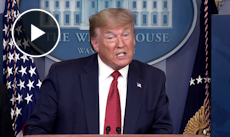 New
York and six other Northeastern states New York, New Jersey, Connecticut,
Pennsylvania, Delaware, Massachusetts and Rhode Island, on Thursday extended
coronavirus stay-at-home orders to May 15, as President Donald Trump issued
new federal guidelines for a cautious reopening of the economy in keeping with
advice from leading public health authorities. New
York and six other Northeastern states New York, New Jersey, Connecticut,
Pennsylvania, Delaware, Massachusetts and Rhode Island, on Thursday extended
coronavirus stay-at-home orders to May 15, as President Donald Trump issued
new federal guidelines for a cautious reopening of the economy in keeping with
advice from leading public health authorities.
"We are not opening all at once, but one careful step at a time, but only
after states record a 14-day "downward trajectory" in their coronavirus
cases after each phase. " Trump told reporters at a White House briefing where
the plan was unveiled.
The plan also recommends that hospitals institute a "robust testing program"
that includes antibody screenings for healthcare workers before restrictions on
businesses and social life are lifted.
Some states with relatively few cases could begin phase one almost immediately.
"They will be able to go literally tomorrow," Trump said at the briefing.
Governors in a handful of states this week began talking about reopening their
economies as early as May 1, including North Dakota, Ohio and Tennessee.
Seven Midwestern governors and three on the West Coast have announced similar
pacts to the Northeast group for coordinated reopenings.
reuters.com
Trump suggests U.S. states re-open economies in three phases in new guidelines
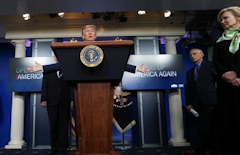 In
the first phase of Trump's guidelines larger venues like restaurants and
movie theaters could operate again with strict social distancing. In
the first phase of Trump's guidelines larger venues like restaurants and
movie theaters could operate again with strict social distancing.
Non-essential travel could resume and schools could open their doors again
and sporting arenas can operate under "moderate" physical distancing during
phase two.
In phase three medically vulnerable people could resume public interactions.
The New York Times reported that Trump told governors of states that some
could re-open their states by May 1 or earlier. He was also expected to soon
announce hiring plans for tracking the disease's spread, according to the
Times.
reuters.com
Crime Across the Globe
Plummets
"The longer
we're in a lockdown," San Jose PD Chief said, "the more we're playing with
fire."
Law Enforcement's Preparing For the Worst
The Coronavirus Pandemic Is Reducing Some Types of Crime
Since many cities are devoid of crowds, crimes of opportunity such as robbery,
sexual assault, and battery are down. Because many people are remaining
at home, there has also been a significant drop in residential burglaries
and property theft.
A study by
USA Today analyzed crime data from 53 police agencies in 24 states. The
study found that police agencies have been experiencing significantly fewer
calls for service and fewer reports of crime; also, they have made fewer
arrests. USA Today also found substantial drops in crimes such as driving under
the influence and drug cases. In some jurisdictions the decline has been as much
as 92 percent.
Surge in Domestic Disturbance Calls
Domestic violence police calls for service have increased
10 percent to 30 percent as a result of widespread stay-at-home orders.
Increased domestic violence crimes are to be expected when families spend
substantial time together indoors and experience significant stress due to a
loss of income, loss of job security, supply shortages, and uncertainty about
the future.
There is a substantial risk of an increase in online crimes, too.
Criminals that typically engage in street crime are likely to turn to in
fraud-based internet crimes to fund their enterprises.
The coronavirus public restrictions have significantly curtailed street
prostitution in different parts of the world. As a result, there is likely to be
an increase in online prostitution sites and other internet sites that promote
victims in the sex trade.
The scarcity of some supplies needed to increase safety has led to price
gouging. As of March 17, the
Attorney General of Connecticut had received 71 complaints regarding price
gouging of items such as hand sanitizer, disinfectant wipes, and toilet
paper. This is consistent with past national emergencies
For law enforcement, this most unusual time is an excellent opportunity to be
proactive in addressing internet-based fraud and crime.
inhomelandsecurity.com
Crime drops around the world as COVID-19 keeps people inside
In Chicago, one of America's most violent cities, drug arrests have plummeted
42% in the weeks since the city shut down, compared with the same period last
year. Part of that decrease, some criminal lawyers say, is that drug dealers
have no choice but to wait out the economic slump.
"The feedback I'm getting is that they aren't able to move, to sell anything
anywhere," said Joseph Lopez, a criminal lawyer in Chicago who represents
reputed drug dealers.
A trend playing out globally as cities report stunning crime drops in the
weeks since measures were put into place to slow the spread of the virus.
Even among regions that have the highest levels of violence outside a war
zone, fewer people are being killed and fewer robberies are taking place.
Still, law enforcement officials worry about a surge of unreported domestic
violence, and what happens when restrictions lift - or go on too long.
Across Latin America, crime is down to levels unseen in decades. In Peru crime
levels fell 84% last month.
In South Africa, police reported a stunning decline during their first week of
lockdown measures.
ap.com
Viral marketing: Counterfeits in the time of pandemic

New
Europol report on who the counterfeiters are and how they are trying to profit
from COVID-19
From websites selling fake COVID-19 blood
screening tests taken down by several EU Member States' law enforcement
authorities to the seizure of substandard facemasks originating from Brazil and
the sale of chloroquine via instant messaging apps: counterfeiters have been
quick to cash in on COVID-19. The outbreak of the coronavirus disease has
offered an opportunity for fast cash, as criminals exploit shortages of genuine
products and the anxieties of regular citizens. The profits generated by these
criminals during this time of crisis are likely very substantial, as these
criminals operate in complete disregard of the health and well-being of us all.
In a
report published today, Europol provides an up-to-date threat picture of the
activities of counterfeiters during the COVID-19 crisis.
europol.europa.eu
Security lapse exposed Clearview AI source code
AG's Investigating - PD's Told Not to Use -
Cease-&-Desist Letters
The controversial facial recognition startup allows its law enforcement users to
take a picture of a person, upload it and match it against its alleged database
of 3 billion images, which the company scraped from public social media
profiles. And for a time, a misconfigured server exposed the company's
internal files, apps and source code for anyone on the internet to find.
Since it exploded onto the scene in January after a newspaper exposé, Clearview
AI quickly became one of the most elusive, secretive and reviled companies in
the tech startup scene.
&uuid=(email)) Clearview
has been dogged by privacy concerns since it was forced out of stealth following
a profile in The New York Times, but its technology has gone largely untested
and
the accuracy of its facial recognition tech unproven. Clearview claims
it only allows law enforcement to use its technology, but reports show that the
startup
courted users from private businesses like Macy's, Walmart and the NBA. But
this latest security lapse is likely to invite greater scrutiny of the
company's security and privacy practices. Clearview
has been dogged by privacy concerns since it was forced out of stealth following
a profile in The New York Times, but its technology has gone largely untested
and
the accuracy of its facial recognition tech unproven. Clearview claims
it only allows law enforcement to use its technology, but reports show that the
startup
courted users from private businesses like Macy's, Walmart and the NBA. But
this latest security lapse is likely to invite greater scrutiny of the
company's security and privacy practices.
In February, Clearview
admitted to customers that a list of its customers was stolen in a data
breach - though, it claimed its servers were "never accessed." Clearview also
left unprotected several of its cloud storage buckets containing its
Android app.
Vermont's attorney general's office has already
opened an investigation into the company for allegedly violating
consumer protection laws, and police departments have been told to stop using
Clearview, including in New Jersey and San Diego. Several tech companies,
including Facebook, Twitter and YouTube, have already filed cease-and-desist
letters with Clearview AI.
techcrunch.com
Jeff Bezos calls for regular COVID-19 testing across industries - including
Amazon
"Regular testing on a global scale, across
all industries, would both help keep people safe and help get the economy back
up and running."
Retail's Everyday Heroes
For grocery & pharmacy workers, the need for mental health care may outlast
coronavirus pandemic
What Happens in Second Round This Fall
For grocery store and pharmacy workers across the U.S., stocking shelves and
checking out customers have become anxiety-inducing tasks. Each commute and
customer interaction comes with the risk of exposure to the coronavirus. And
returning home means a chance of transmitting a potentially deadly illness to a
spouse or family member.
Thousands of grocery and retail workers have gotten sick from Covid-19. Some
have died.
Major retailers, psychologists and the nation's top grocery worker union say
they anticipate a greater need for mental health services, such as therapy,
as people continue to work during the pandemic and later cope with its
aftermath. Anxiety, depression and other mental health challenges may linger,
even as
coronavirus cases level out or decline - especially for those on the front
lines.
"We cannot overlook the mental health impacts this pandemic is having on all
of us," said New Jersey's health commissioner Judy Persichilli, at a news
conference Thursday. She said some Americans are out of work, far from those
they love and anxious as they risk exposure during essential work - which
creates new worries.
On a phone call Monday, grocery workers from across the country who belong to
the United Food and Commercial Workers International Union shared their worries
of catching the coronavirus or bringing it home to their families. The
workers said those fears have been exacerbated by customers who don't wear masks,
especially as they see their friends and co-workers get sick.
As of Monday, 30 people who belong to the union, which represents 1.3
million workers at grocery chains, meatpacking plants and more, have died
from Covid-19. About 3,000 have been directly affected by the virus,
such as through infection, hospitalization or quarantine because of symptoms.
He said the needs will be greater, if there's a second round of the
coronavirus in the fall or winter.
cnbc.com
What Will Reopening Workplaces Look Like?
Companies' and workers' priorities have
changed during the coronavirus pandemic
When U.S. mayors and governors eventually lift the social distancing orders they
imposed to curb the coronavirus outbreak, reopening businesses likely won't be
as simple as switching on the lights and welcoming employees back to their
desks.
HR experts expect employers and employees to experience a new work world
initially, and perhaps long term, rather than business as usual once the lethal
pandemic abates.
Workers may return in phases and will find new face masks, handwashing stations
and wellness checks.
Not only will organizations need to consider measures to ensure the health
and safety of their returning workforces-phased-in returns to the workplace
and physical distancing, for instance-they also may encounter greater
employee demand for flexible hours, remote-work arrangements and generous paid
sick leave as part of the new normal.
"I think we're walking into a completely different world with a different set of
rules," said Chester Lantin, SHRM-CP, HR director at Chicago marketing agency
Walker Sands.
Reopening May Start and Then Stop
Employers are starting to think about moves they might take to re-establish a
regular work life, including rotating schedules, virus screening, cleaning
and providing protective equipment.
Forecasters expect the outbreak and restrictions to mitigate them to persist for
months or longer, with potential subsequent waves of waning and resurgence,
until a vaccine or effective treatment becomes widely available.
So we could have these waves of flare-ups, controls, flare-ups and controls
until we actually get a therapy or a vaccine. I think we should all be focusing
on an 18-month strategy for our health care system and our economy.
shrm.org
With New Guidance, OSHA Scales Back COVID-19 Reporting Requirements
New guidance from the Occupational Safety and Health Administration (OSHA)
relieves employers of some responsibility for investigating and recording cases
of COVID-19 among employees, but businesses still must record those that are
obviously work-related.
Labor attorneys said
the April 10 guidance was a welcome clarification of previous instructions
to record all work-related cases of COVID-19, the illness caused by the novel
coronavirus, on OSHA 300 logs.
Sigel said she thought OSHA's change was narrow. "They're not retracting the
concept that COVID-19 is a recordable illness but acknowledging that it's been
difficult for employers to make the determination. They don't want employers to
have to spend resources trying affirmatively to search for the answer."
shrm.org
NYC Retail Employment to Lose 100,000 Jobs
Pier 1 Imports May Shut Down 90% Of Its Stores
The RealReal cutting 10% of workforce - 235 jobs
Electronic Security
Expo (ESX) 2020, scheduled for June 9-12, has been cancelled
On-Demand Webinar from Sensormatic & Loss Prevention
Foundation:
Artificial Intelligence (AI) is Changing Everything
Senior LP Job Postings Removed from Website:
• VP Asset Protection - BJ's Wholesale
Club - Westborough-Home Office, MA
• Vice President of Asset Protection -
Casey's General Stores - Ankeny, Iowa
• Sr. Director, Enterprise Security -
Coca-Cola Consolidated - Charlotte, NC
• Asset Protection Director - McLane -
Temple, TX
• Dir., Security LP - Spectrum - New
York, NY
• Executive Protection Manager - CVS
Health - Woonsocket, RI
• Security Manager - Nike - New York,
NY
Coming Monday:
Catch our #1 ORC Case reported in the Daily over the past five years.
See the rest of the list
here.
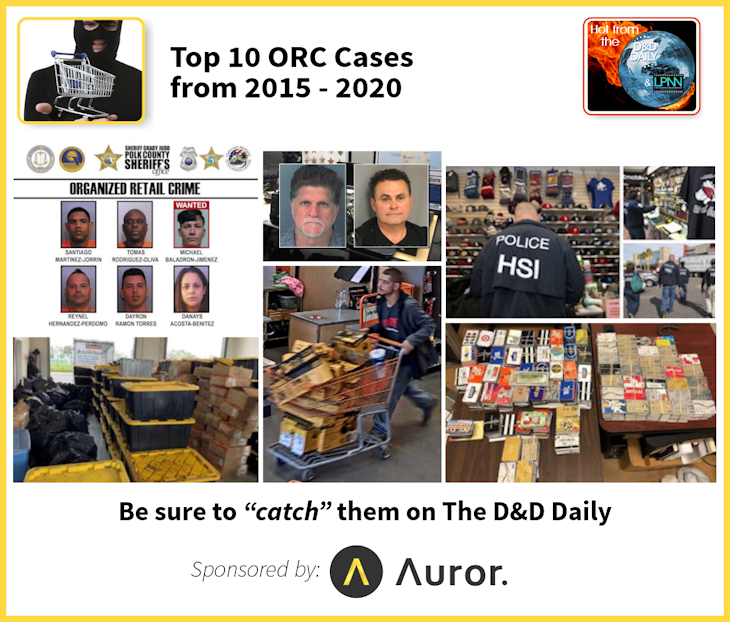
|
|

|
All the News - One Place - One Source - One Time
Thanks to our sponsors/partners - Take the time to thank them as well please.
If it wasn't for them The Daily wouldn't be here every day for you.
|
|
&uuid=(email))
|
|

|
|
RETAILERS: LEARN HOW TO NAVIGATE UNCERTAIN TIMES WITH SECURITY TECHNOLOGY
|
Join Genetec for a
conversation with leaders from Retail and Quick Service Restaurants (QSR) on
Tuesday, April 21st at 5:15 pm - 5:45 pm EDT/ 2:15 pm - 2:45 pm PDT.
During this session, we will discuss current challenges
facing the retail industry, and the importance of security technology in
navigating these uncertain times.
Register here:
www.genetec.com/connectdx
Here's a video clip of the session.
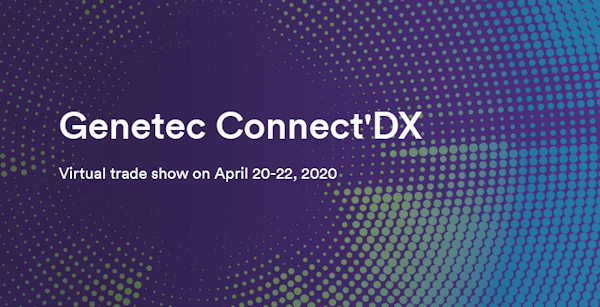
|
|
|
&uuid=(email)) |
|
&uuid=(email))
|
|
Coronavirus Surveillance Highlights Need for Federal Privacy Law
Advocates are warning this will be
one of the largest expansions of public and private surveillance in recent
memory.
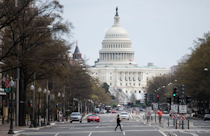 "Because
what we're seeing in Europe is very strong privacy laws," Ms. Gray said. "It's
also very clear: Companies know what they can and cannot do." "Because
what we're seeing in Europe is very strong privacy laws," Ms. Gray said. "It's
also very clear: Companies know what they can and cannot do."
European Union regulators have issued guidance in recent weeks on how businesses
should share data with health authorities and researchers, to protect
individuals' privacy and comply with the 2018 General Data Protection
Regulation. Recommendations include standard approaches to
stripping personally identifiable information.
Health officials say such data-sharing partnerships between the public and
private sectors could be key to understanding the virus's spread and
gradually reopening the economy. In the highest-profile example announced
last week, Apple Inc. and Alphabet Inc.'s Google said they would build
infrastructure to allow health agency apps to
trace users' exposure to infected individuals via Bluetooth. The
information will remain stored on individual users' phones rather than in a
centralized database.
"The absence of a federal privacy framework has left us less prepared to respond
to the crisis with a coordinated, data-driven, and trusted effort," Mr. Dufault
wrote.
wsj.com
PWC Survey of 313 U.S. CFO's - Covid-19 Budget Impact
Plan on Not Cutting Cyber/Privacy Efforts
Finance leaders are also prioritizing what programs to protect. For example,
respondents who are looking at where to lower spending do not want to cut
investments in digital transformation, customer experience or
cyber/privacy. Facilities and general capital expenditures on the other
hand, are hard to justify now, and 82% of US finance leaders are considering
containment measures in this area.
Consumer-facing companies anticipate it taking longer to get back to "business
as usual" when COVID-19 ends, with 33% saying they expect it will take 6
months or more, compared to 18% across all sectors.
Meanwhile, consumer habits are evolving in response to stay-in-place mandates,
with more spending moving online. That's likely to have long-lasting
effects, prompting changes in business models.
pwc.com
United States Considering Coronavirus 'Immunity Cards'
Post Pandemic, Technologists Pose Secure Certification for Immunity
Going digital with immunity passports could speed rollout and allow for
better warnings of potential hot spots. But security and privacy issues
remain.
With signs that the coronavirus pandemic is waning in several countries, world
leaders have begun to consider how their economies can be reopened, with a focus
on the large - and growing - group of people who have already survived infection
and should be able to return to work.
Yet to do that, businesses and the government need to be able to identify and
certify those who have gained immunity. Enter the concept of "immunity
passports."
&uuid=(email)) The
promise of such immunity certificates is that people who have
already had their bout with the novel coronavirus and gained immunity can go
back to work because they are presumably vaccinated against reinfection. Germany
plans to introduce immunity certificates for citizens who have been exposed
and are now immune. China has already implemented a red-amber-green system
that classifies citizens according to the risk they pose to others. And in
the United States, immunity cards are being considered, Anthony Fauci,
director of the National Institute of Allergy and Infectious Diseases,
told CNN. The
promise of such immunity certificates is that people who have
already had their bout with the novel coronavirus and gained immunity can go
back to work because they are presumably vaccinated against reinfection. Germany
plans to introduce immunity certificates for citizens who have been exposed
and are now immune. China has already implemented a red-amber-green system
that classifies citizens according to the risk they pose to others. And in
the United States, immunity cards are being considered, Anthony Fauci,
director of the National Institute of Allergy and Infectious Diseases,
told CNN.
While paper certificates may be an option, a digital certificate will
likely be preferable. Already, China has deployed such certificates to its
citizens' mobile devices. It's likely that other countries will do the same,
making the infrastructure easier to roll out and maintain but raising the
possibility of privacy and security issues.
"We can't argue with the fact that the Chinese model is effective -if your phone
cannot say you are green, then you cannot be out - but there is zero privacy.
There does not need to be a trade-off, however. You can offer all those benefits
and have a privacy-first approach with a decentralized model."
"Businesses and organizations would need to ... educate their workforce on how
to validate that a certificate was correct," he says. "And there would need to
be a substantial educational investment to combat the inevitable phishing
campaigns that'd spring up, such as fake websites to collect personally
identifiable information and fake security alerts associated with these digital
certificates."
All the components of the infrastructure for a digital passport exist, but
creating open standards and certifying tests are both hurdles that need to be
overcome, says Jasson Casey, chief technology officer for Beyond Identity,
an identity provider aiming to ditch passwords.
darkreading.com
Editor's Note: This could rekindle the National Identity Card effort that has
failed to take hold in the U.S.
Cyber Threats Are Called Viruses For a Reason
4 Cybersecurity Lessons from the Pandemic
An epidemiologist-turned-CTO describes the parallels between the spread of a
computer virus and the real-world coronavirus.
I switched from epidemiology to network security as my day job years ago, but
today's pandemic reminds me of the similarities between the two fields. There
are many lessons we can take from the real-world virus and apply them to
security in the online world.
It may not be obvious, but the spread of information on computer networks is
like disease processes. It starts at the most basic level - when you connect
to the Internet, you launch what epidemiologists would call a "nearest neighbor
spread" process but what network gurus call a routing protocol. One router
learns that you're there, it tells its neighbors, and they tell their neighbors,
in a wave that spreads out across the network - spreading your information like
a disease.
It's no coincidence that some of the first major computer threats were called
viruses - they spread in ways that look like biological agents, with similar
strategies for infection and reproduction. If you've ever received infected
email from a colleague, you were watching evolution in action: attackers
figuring out that they can more effectively spread if they contact you from
someone you know rather than from an unfamiliar address.
So, what can the study of epidemics teach us about online security? I see four
broad lessons:
Lesson 1: Understanding Lateral Movement
In the online world, attackers find it easiest to breach low-value targets
first, then spread outwards to better targets.
By remaining at home in our fight against the coronavirus, we're fighting back
by blocking its lateral movement. Likewise, digital defenders need to break up
patterns of lateral movement through segmentation that walls off data into
distinct areas. This prevents infections from moving into new segments.
Lesson 2: Know Where Infections Are
In the fight against disease, it's increasingly clear that the difference
between countries that have better or worse outcomes comes down to who can test
the most. They can see where the disease really is and get ahead of it. Digital
security is the same. We struggle to know where we have infections, and response
teams are often scrambling to catch up with something that has already begun to
spread.
For real-world diseases, we use contact tracing. If you just learned one person
is a carrier, immediately track down their contacts, test them, and quarantine
as necessary. The digital version of the challenge is much harder because
computers communicate across a network in many different and shifting
directions, comparable to having every person on earth flying country to country
every day.
Lesson 3: Slow It Down - Lesson 4: Hygiene Is Critically Important
darkreading.com
More Zoom Bombing
Hiroshima Type Zero-Day Bombing & the Cheap Stuff
You've got to ask yourself a
question, is it even worth it?
Hackers Are Selling a Critical Zoom Zero-Day Exploit for $500,000
 People
who trade in zero-day exploits say there are two Zoom zero-days, one for Windows
and one for MacOS, on the market. People
who trade in zero-day exploits say there are two Zoom zero-days, one for Windows
and one for MacOS, on the market.
Hackers are selling two critical vulnerabilities for the video conferencing
software Zoom that would allow someone to hack users and spy on their calls,
Motherboard has learned.
Zero-day exploits or just zero-days or 0days are unknown vulnerabilities in
software or hardware that hackers can take advantage of to hack targets.
Depending on what software they're in, they can be sold for thousands or even
millions of dollars.
vice.com
Stolen Zoom Credentials: Hackers Sell Cheap Access
One measure of the popularity of the Zoom teleconferencing software: Cybercrime
forums are listing an increasing number of stolen or cracked accounts for sale.
Using these credentials, miscreants could "Zoom bomb" calls by showing up
uninvited, potentially record and leak the contents of calls, as well as push
malicious files to meeting participants.
The company tells
Bleeping Computer that it was able to purchase about 530,000 credentials for
Zoom accounts for an average of just $0.0020 each. Purchased account information
included a victim's email address, password, personal meeting URL, and HostKey -
a 6-digit PIN used to gain access to the host controls in a meeting, the
publication reports.
govinfosecurity.com
|
&uuid=(email)) |
|
|
|

&uuid=(email))
|
|
|
COVID-19 will change consumers' online shopping behaviour
The company's latest report,
COVID-19 impact on delivery and returns, reveals that contactless
delivery was widely introduced in China, setting the bar high for retailers
and foodservice providers globally. E-commerce giants Alibaba and JD.com's food
& grocery arms introduced contactless delivery methods, as well as
foodservice providers such as Meituan employing this method for takeaways with
customers being informed of both the chef and delivery driver's temperature - a
level of detail that has not yet been replicated in other countries. Contactless
delivery has been introduced by retailers internationally, including in the UK
and US, helping them to keep their online operations open.
"The impacts of COVID-19 have the potential to decrease the popularity of
click & collect beyond the outbreak as more people are expected to work from
home in the long term, so will be able to accept home deliveries. Additionally,
when stores re-open many consumers will be reluctant to visit busy locations
due to lingering concerns around their health. Consumers may switch to
third-party pickup options instead, especially lockers as this fulfilment
method has no contact with others, as long as shoppers are reassured about the
cleanliness of the facilities.
Returns timings and methods are also being affected by COVID-19, with many
consumers being unable to return items if they are self-isolating, or if
the shop they usually return items to has closed. In response to this, retailers
have extended their returns periods to either a set number of days (which may
not be long enough to guarantee that stores will have re-opened and so will need
reviewing) or a specified number of days after stores re-open. Consumers may
come to expect this longer returns period, though many will not want to wait
this long for a refund so this change will have little impact on long term
behaviour.
Retailers need to be prepared for this influx of returns, especially
after stores re-open, and ensure that they refund customers within their stated
timeframes."
globaldata.com
Amazon Business launches COVID-19 Supplies store
Amazon Business is going all-out to build inventory of supplies that medical
professionals, first-responders, scientists and others need to fight the
coronavirus pandemic, the company says.
"Teams across Amazon are urgently working across suppliers to procure
inventory," Amazon.com Inc. says on its new COVID-19 Supplies section of Amazon
Business. Amazon says it's seeking to build out its available inventory of such
personal protective products, or PPE, as facial shields and N95 masks;
ventilators, digital thermometers, exam gloves and sanitizers.
digitalcommerce360.com
E-commerce boost for alcohol and fresh food during COVID-19 likely to remain
|
|
&uuid=(email))
|
|
|
|
&uuid=(email))
|
|
'Top 10 ORC Cases of
2015-2020' - Countdown
#2 (from
January 8, 2016)
 Leader Of International, $200 Million Credit Card Fraud Scam Leader Of International, $200 Million Credit Card Fraud Scam
Sentenced To 80 Months In Prison
TRENTON, N.J. - A New York man was sentenced today to 80 months for leading one
of the largest credit card fraud schemes ever charged by the U.S. Department of
Justice, U.S. Attorney Paul J. Fishman announced.
Tahir Lodhi, 56, of Hicksville, N.Y., previously pleaded guilty. Lodhi directed
the activities of a number of other conspirators in fabricating more than 7,000
false identities to obtain tens of thousands of credit cards. They doctored
credit reports to pump up the spending and borrowing power associated with the
cards. Lodhi and others then borrowed or spent as much as they could, based on
the phony credit history, but did not repay the debts, causing more than $200
million in confirmed losses to businesses and financial institutions.
The conspiracy generated enormous profits for Lodhi and his conspirators - even
though they spent millions of dollars sustaining the elaborate network of drop
addresses and running credit reports on the thousands of false identities.
Records of the New York and New Jersey Departments of Labor reveal that many of
Lodhi's conspirators had no reported legitimate employment in the last five
years. Nonetheless, Lodhi and his conspirators used the proceeds of the criminal
enterprise to buy luxury automobiles, electronics, spa treatments, expensive
clothing and millions of dollars in gold. They also stockpiled large sums of
cash.
 Lodhi
and his conspirators also relied upon complicit businesses, including several
jewelry stores in the Jersey City, N.J., area, to extract money from the
fraudulent cards. The complicit businesses would allow certain conspirators to
conduct sham transactions on the phony cards and would then receive the proceeds
from the credit card companies and split them with the other conspirators. Lodhi
and his conspirators also relied upon complicit businesses, including several
jewelry stores in the Jersey City, N.J., area, to extract money from the
fraudulent cards. The complicit businesses would allow certain conspirators to
conduct sham transactions on the phony cards and would then receive the proceeds
from the credit card companies and split them with the other conspirators.
Due to the massive scope of the conspiracy, which involved more than 25,000
fraudulent credit cards, loss calculations are ongoing. Final figures may grow
beyond the present confirmed losses of more than $200 million. justice.gov
Click here to
follow along as we count down the Top 10 ORC Cases from 2015-2020.
Los Angeles, CA: LAPD Organized Retail Theft Unit Detectives warning the public
of Covid-19 Scams
 The
Los Angeles Police Department's Commercial Crimes Division, Organized Retail
Theft Unit Detectives are urging the public to be aware of potential deceptions,
identity thefts, and scams designed to defraud them of their stimulus money.
According to the LAPD, the following information is provided to assist the
public in identifying and avoiding any such criminal endeavors. The
Los Angeles Police Department's Commercial Crimes Division, Organized Retail
Theft Unit Detectives are urging the public to be aware of potential deceptions,
identity thefts, and scams designed to defraud them of their stimulus money.
According to the LAPD, the following information is provided to assist the
public in identifying and avoiding any such criminal endeavors.
Stimulus Checks: The government issued Economic Impact Payment, commonly
known as a "stimulus check", is not a check at all. It's a payment made by
direct deposit, from the IRS, into an individual's checking account. No forms
are required, and the Federal government won't ask payment up front to process
the payment. The IRS will simply deposit the money, and they've begun this
process for many Americans already. Anyone calling, or knocking on your door,
regarding your stimulus check is likely an identity thief.
In-Home Covid-19 Test Kits: There are no commercially available in-home
tests for COVID-19 that consumers can purchase. There are no consumer services
offering "in-home testing" at this time. Please do not trust anyone offering to
sell tests to individuals, or to test anyone in the privacy of their home. They
could be a burglar, identity thief, or scam artist.
Cures and Vaccines: There are no consumer products that treat or cure the
COVID-19 virus. There is no current vaccine for the corona virus. Anyone
attempting to sell a cure, treatment, or vaccine for corona virus is attempting
to scam individuals out of their money.
Calls and Emails: Be particularly aware of emails, texts and calls
claiming to be from health or government officials regarding your health. These
calls may be an attempt to obtain your credit or personal information. Emails
may tempt consumers to click on links that install malware of various kinds on
their computers.
Price Gouging: Individuals or businesses selling COVID-19 related
products at exorbitant prices are committing a crime. Consumers who observe this
activity should report it to the police.
Prevention: Please follow guidelines to remain at home, to wash your
hands, to engage in social distancing, and remain safe. Be vigilant for anyone
attempting to sell you "snake oil" cures, treatments, tests, or vaccines. Please
be careful of anyone attempting to obtain your personal information, and avoid
any suspicious COVID-19 email links.
westsidetoday.com
Bronx, NY: Masked crooks on Gun Hill Road hold cellphone store owner at gunpoint
and steal $11,000 in merchandise
NYPD reported that once inside, one of the suspects displayed a firearm and
ordered that employees open a safe at the back of the store. The pair removed
$11,000 worth of merchandise from the safe including 13 cellphones, a smartwatch
and various phone accessories.
bxtimes.com
Wasco, CA: Two cited for shoplifting at Rite Aid
 Two
people were cited in connection with a shoplifting incident at a Rite Aid store
in Wasco on Wednesday. According to the Kern County Sheriff's Office, around
12:30 p.m., staff from the Rite Aid reported that an unknown suspect fled the
store with a shopping cart full of merchandise. A short time later, Deputies
located the suspect's vehicle. Eduardo Martinez and Angelica Aguilar were cited
and released for shoplifting, conspiracy and looting.
turnto23.com Two
people were cited in connection with a shoplifting incident at a Rite Aid store
in Wasco on Wednesday. According to the Kern County Sheriff's Office, around
12:30 p.m., staff from the Rite Aid reported that an unknown suspect fled the
store with a shopping cart full of merchandise. A short time later, Deputies
located the suspect's vehicle. Eduardo Martinez and Angelica Aguilar were cited
and released for shoplifting, conspiracy and looting.
turnto23.com
Evanston, IL: CVS apprehends shoplifting suspect stealing nearly $600 of
Nicorette Gum
Austintown, OH: Police seek suspect for theft of over $500 in merchandise from
Walmart
|
|
|
|
&uuid=(email))
|
|
|
|
&uuid=(email))

|
|
Shootings & Deaths
Birmingham, AL: Man dies following struggle with store Security Guard at local
market
Birmingham Police Sgt. Rod Mauldin said officers responded about 4 p.m. to
Marino's Market on a report of a disorderly man. When they arrived on the scene,
they learned that the man and the security guard had gotten into a scuffle with
each other. The security guard handcuffed the man and took him outside. By the
time police arrived, the man was unresponsive. He was taken to the Medical
Center. Police were notified of the 50-year-old man's death at 5:40 p.m.
Witnesses said the security guard choked the man until he became unresponsive.
Another witness told AL.com that the agitated customer was trying to get the
security guard's gun, which he then handed to the witness while the security
guard detained the man.
al.com
West Des Moines, IA: Self-inflicted gunshot outside Quik Trip store
&uuid=(email)) The
West Des Moines Police Department says one man is in the hospital with
life-threatening injuries after a shooting on Thursday. Around 12:29 p.m.,
police say a shots fired call was reported near Valley West Mall. While officers
were en route to the first call, another shots fired call came in from a Quik
Trip store. When the first responding officer arrived at Quik Trip, a man left
the building holding a gun. "There was a verbal engagement between the
subject and the officer," said West Des Moines Police Sergeant Jason Bryan. "At
which point, it appears the subject took his own life at that point." West
Des Moines Police later said in a news release that the suspect was taken to the
hospital with life-threatening injuries. No shots were fired by officers.
Several vehicles were shot by the suspect, but no injuries were reported.
whoradio.iheart.com The
West Des Moines Police Department says one man is in the hospital with
life-threatening injuries after a shooting on Thursday. Around 12:29 p.m.,
police say a shots fired call was reported near Valley West Mall. While officers
were en route to the first call, another shots fired call came in from a Quik
Trip store. When the first responding officer arrived at Quik Trip, a man left
the building holding a gun. "There was a verbal engagement between the
subject and the officer," said West Des Moines Police Sergeant Jason Bryan. "At
which point, it appears the subject took his own life at that point." West
Des Moines Police later said in a news release that the suspect was taken to the
hospital with life-threatening injuries. No shots were fired by officers.
Several vehicles were shot by the suspect, but no injuries were reported.
whoradio.iheart.com
Belton, MO: Man charged with second-degree murder after Car Dealership shooting
The Belton Police Department is investigating a shooting that claimed the life
of a man at a car dealership Thursday morning. Police said officers were called
to investigate a possible shooting at the Show Me Auto Mall around 10:45 a.m.
Thursday. When they arrived, officers found a man dead from apparent gunshot
wounds. Police said a man was taken into custody in connection with the
incident. Police said the suspect in this case, Edward Cornejo-Juarez, has been
charged with second-degree murder and armed criminal action in connection with
Kyle Wanner's death.
kmbc.com
Robberies, Incidents & Thefts
West Brownsville, PA: Woman Accused Of Shoplifting At Walmart Attacks Employee
 Trooper
Robert Broadwater told KDKA "it's called under-ringing." "She was scanning the
Kool-Aid packets while filling the bags up with other items like clothing,
groceries and food." What Good didn't realize was the store loss prevention
officer was on to her. When confronted by him, a bad situation for Good became
worse. According to investigators, she struck the male victim in the head with a
blunt object. Then she was gone, taking off out of the store. The store
employee, still in a daze after the blow to the head, couldn't pursue her. "She
has a history of shoplifting, especially at that store," said Broadwater. On the
run for a few days, Tiffany Jane Good is now in custody held on $5,000 dollars
bond. She's charged with multiple counts including robbery and assault.
pittsburgh.cbslocal.com Trooper
Robert Broadwater told KDKA "it's called under-ringing." "She was scanning the
Kool-Aid packets while filling the bags up with other items like clothing,
groceries and food." What Good didn't realize was the store loss prevention
officer was on to her. When confronted by him, a bad situation for Good became
worse. According to investigators, she struck the male victim in the head with a
blunt object. Then she was gone, taking off out of the store. The store
employee, still in a daze after the blow to the head, couldn't pursue her. "She
has a history of shoplifting, especially at that store," said Broadwater. On the
run for a few days, Tiffany Jane Good is now in custody held on $5,000 dollars
bond. She's charged with multiple counts including robbery and assault.
pittsburgh.cbslocal.com
Tampa, FL: Local Hotel employee arrested for theft of over $70,000; fake
invoices
Muskogee, OK: Man sentenced to 8 months for Grab & Run of a firearm from Gun
Store
Burbank, IL: Shoplifter pulls gun on Jewel-Osco staff when approached for
shoplifting
Odessa, TX: Woman charged with Robbery following assault on Grocery store
Security Guard in $100 theft
Denver, CO: Marijuana Dispensaries see increase in Burglaries during coronavirus
pandemic
UK: West Midlands, England: Corner stores are being targeted by shoplifters to
fund drug habit, warns police chief
|
|
&uuid=(email))
|
| |
|
&uuid=(email))
|
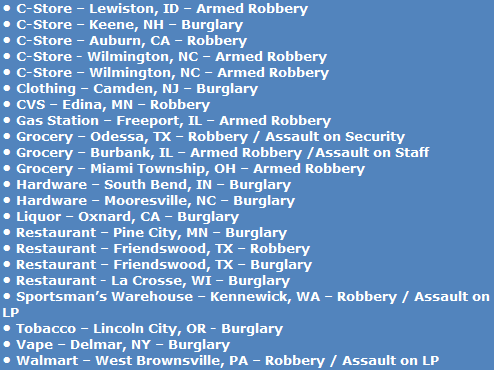 |
|
|
Daily Totals:
• 12 robberies
• 10 burglaries
• 0 shootings
• 0 killed |
|
Weekly Totals:
• 53 robberies
• 45 burglaries
• 0 shootings
• 0 killed |
|
|
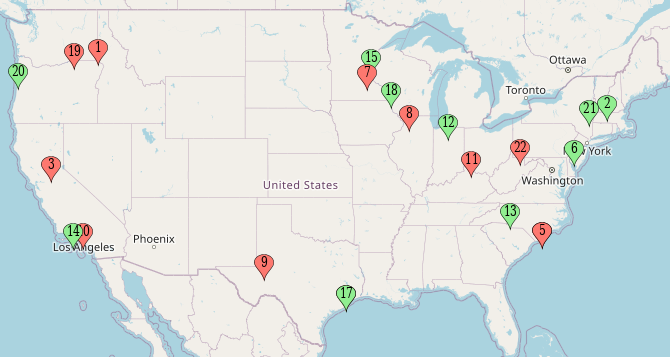
Click to enlarge map
|
&uuid=(email))
|
|
|
 |
|
None to report. |
|
Submit Your New Hires/Promotions or New Position
|
|
|
 |
|
|
Featured Job Spotlights

|
District Loss Prevention Manager
Roanoke, VA
The District Loss Prevention Manager ensures shrinkage control and
improves safety in the stores through proper investigation and training. This
position is responsible to provide feedback, guidance and protection for our
Team Leaders and Associates. This role has oversight and responsibility for
approximately 8 to 10 store locations...
|

|
District Loss Prevention Manager
Knoxville, TN
● Investigate reports of asset losses, injuries, or harassment to
determine proper facts and execute proper disciplinary actions.
● Conduct physical security checks to minimize asset loss and maintain CCTV and
Alarm systems.
● Train new associates in the areas of Asset Protection and
safety.
● Create and recommend ideas for increased shortage control and fewer accidents...
|
 |
Area
Loss Prevention Manager - Central Valley
Fresno, CA
Our Area Loss Prevention Managers ensure safe and secure stores through the
objective identification of loss and risk opportunities. Our Area Loss
Prevention Managers plan and prioritize to provide an optimal customer
experience to their portfolio of stores. They thrive on supporting and building
high performance teams that execute with excellence...
|
 |
VP of Product
Ontario, CA
Solink is looking for a dynamic leader to define and ensure the entire company
is aligned on our product strategy. There are many facets to this role, but most
importantly, you will manage and inspire the development team towards building a
product that will continue to revolutionize the way our customers use video by
creating opportunity through data....
|

|
Physical Security Leader
Corte Madera, CA
Responsible for leading and execution of the Protection and Prevention tiers of
the Profit Protection strategy for all RH locations including our Corporate
Campus in Corte Madera, CA - PROTECTION - Access Control | Alarms | CCTV |
Guards - PREVENTION - Awareness | Audits | P&P | Training...
|

|
Loss
Prevention Manager
Las Vegas, NV
● Demonstrate management leadership skill to achieve the goals of the
Company.
● Experienced with and has knowledge of regulatory agencies to include:
TSA, DOT and OSHA.
● Establishes and communicates a risk business plan consistent with the
objectives of the Company that pro-actively identifies and corrects poor
behaviors...
|
Featured Jobs
To apply to any of today's Featured Jobs,
Click Here
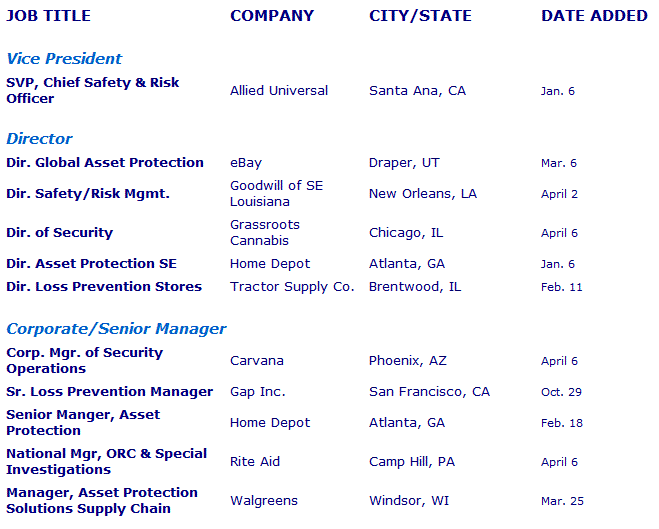
|
|
View Featured
Jobs |
Post Your Job
|
|
|
 |
|
|
|

&uuid=(email)) |
|
|
Energy is the primary force behind success and without it mediocrity or failure
is almost guaranteed. The ability to move things forward and influence change
requires energy and there's a direct correlation to the amount of it and to the
degree of success. It's great to start off energized and gung ho about a project
or initiative, but it's critical to maintain the energy thru to completion. As
one senior executive has said, "there's no bad plan -- it's always a matter of
execution" and execution is all about energy. So when you think you've lost your
energy, take a break, do something different, and give your mind a chance to
re-energize. Because the worst thing you can do is to try to execute without it.
Just a Thought,
Gus

 |
|
We want to post your tips or advice... Click here |
|
&uuid=(email))
|
|
|
|
Not getting the Daily? Is it ending up in your spam folder?
Please make sure to add d-ddaily@downing-downing.com to your contact list,
address book, trusted sender list, and/or company whitelist to ensure you
receive our newsletter.
Want to know how?
Read Here |
|
FEEDBACK
/
downing-downing.com
/
Advertise with The D&D Daily |
|
 |

&uuid=(email))
&uuid=(email))
&uuid=(email))
&uuid=(email))




&uuid=(email))
&uuid=(email))
&uuid=(email))

&uuid=(email))
&uuid=(email))
&uuid=(email))
&uuid=(email))
&uuid=(email))
&uuid=(email))

&uuid=(email))
&uuid=(email))
&uuid=(email))
&uuid=(email))
&uuid=(email))
&uuid=(email))
&uuid=(email))
&uuid=(email))
&uuid=(email))
&uuid=(email))
&uuid=(email))
&uuid=(email))
&uuid=(email))



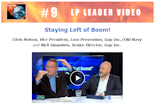










%20V2.png)

&uuid=(email))

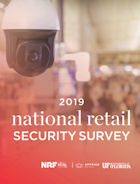













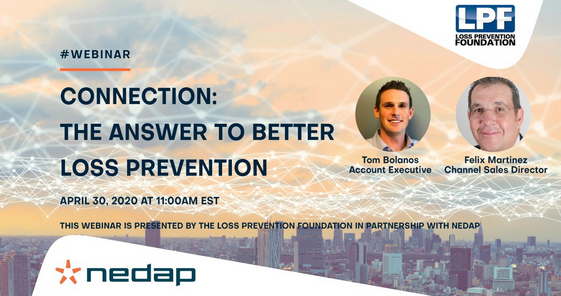
&uuid=(email))







&uuid=(email))



 "Because
what we're seeing in Europe is very strong privacy laws," Ms. Gray said. "It's
also very clear: Companies know what they can and cannot do."
"Because
what we're seeing in Europe is very strong privacy laws," Ms. Gray said. "It's
also very clear: Companies know what they can and cannot do."&uuid=(email))


&uuid=(email))
&uuid=(email))
&uuid=(email))


 The
Los Angeles Police Department's Commercial Crimes Division, Organized Retail
Theft Unit Detectives are urging the public to be aware of potential deceptions,
identity thefts, and scams designed to defraud them of their stimulus money.
According to the LAPD, the following information is provided to assist the
public in identifying and avoiding any such criminal endeavors.
The
Los Angeles Police Department's Commercial Crimes Division, Organized Retail
Theft Unit Detectives are urging the public to be aware of potential deceptions,
identity thefts, and scams designed to defraud them of their stimulus money.
According to the LAPD, the following information is provided to assist the
public in identifying and avoiding any such criminal endeavors.
&uuid=(email))
&uuid=(email))

&uuid=(email))

&uuid=(email))
&uuid=(email))


&uuid=(email))








&uuid=(email))

&uuid=(email))
